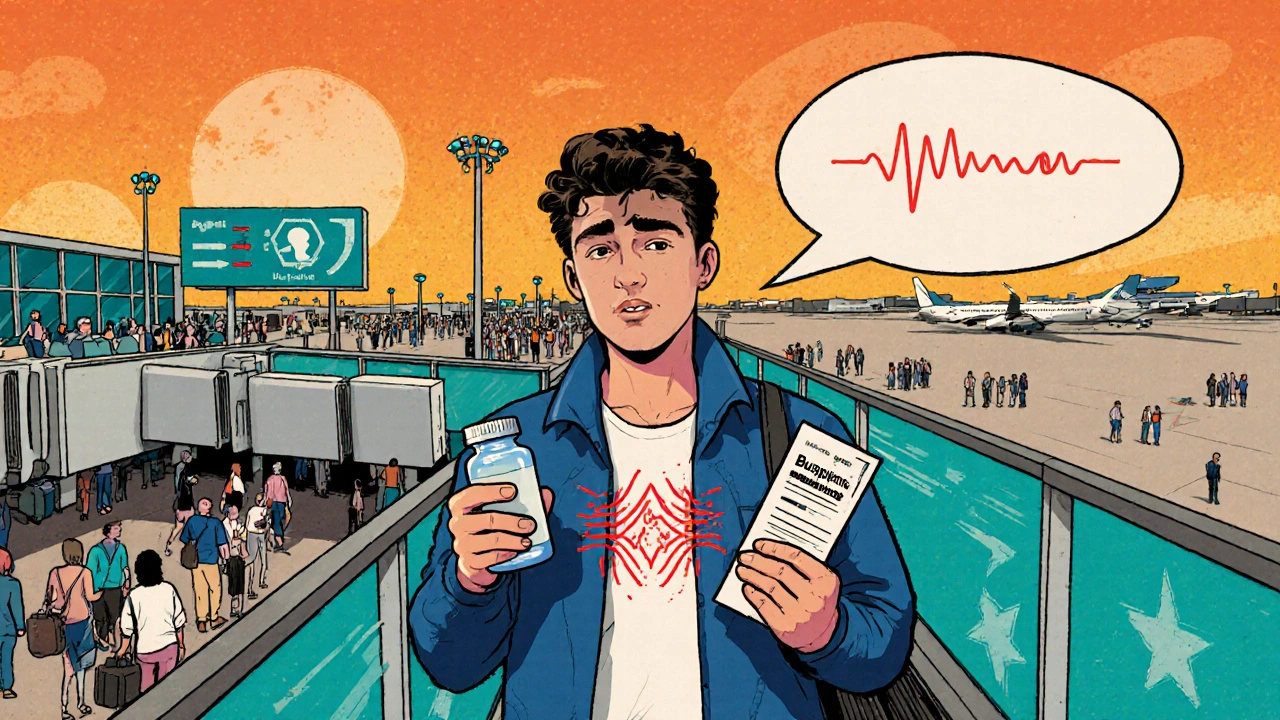Travel Health: Practical Tips to Stay Well on the Road
Travel should be fun, not a health scramble. A few simple steps before and during your trip stop most problems: check vaccines, pack the right medicines, and handle motion sickness. These tips help whether you're flying, driving with kids, or heading off the beaten path.
Before You Go
First, review your destination's risks. Does the area need vaccines like hepatitis A, typhoid, or a flu shot? Contact your doctor or a travel clinic 4–6 weeks ahead so shots have time to work. If you take prescription meds, bring enough for the whole trip plus a few extra days. Keep medicines in original bottles and pack a written list with dosages and your doctor's contact.
Buy travel insurance that covers medical evacuation if you’ll be far from good care. Save digital copies of prescriptions, your ID, and emergency contacts to your phone and email. If you have chronic conditions—diabetes, asthma, heart issues—talk to your clinician about handling changes in time zones, altitude, or activity level.
On the Road or in the Air
Packing a compact health kit pays off. Include pain relievers, antihistamines, anti-diarrheal medicine, oral rehydration salts, adhesive bandages, and a thermometer. For kids, bring child-friendly doses and a small distraction kit. Add sunscreen, insect repellent (20–30% DEET or a recommended alternative), and any topical antibiotics or hydrocortisone cream for bites and rashes.
Travel sickness can spoil a trip fast. Simple fixes work: sit where motion is least felt (front seat or over the wing), stare at the horizon, get fresh air, and avoid heavy meals and alcohol before travel. Ginger candy or ginger tea helps many people. If you need medication, options like meclizine or dimenhydrinate are common; scopolamine patches help on longer trips. For kids, talk to your pediatrician about safe doses.
Hydration and sleep matter. Plan short breaks on long drives to stretch and rehydrate. On planes, drink water regularly—airplane cabins dry you out. If you’re crossing time zones, shift your sleep schedule slightly before you leave to reduce jet lag.
Food and water safety are practical, not paranoid. In higher-risk regions, avoid ice, street food that looks risky, and raw produce unless peeled. Use bottled or treated water for brushing teeth if local tap water is unsafe. If you’re hiking or camping, know how to purify water and carry basic wound care supplies.
Finally, know where to find help. Before you travel, note the nearest pharmacy and hospital at your destination. Learn emergency numbers and local health advisories. If someone becomes seriously ill, seek care early—delays make treatable issues worse. With a little planning, most trips go smoothly and you keep your momentum and mood intact.

How to Handle Medication Security at Hotels and Hostels
Learn how to safely store prescription and over-the-counter medications in hotels and hostels to prevent theft, accidental access, or legal trouble. Follow proven steps using safes, lock boxes, and original containers.
View More
How to Manage Medication Refills During Extended Travel
Learn how to avoid medication shortages while traveling by planning early, using insurance overrides, packing smart, and understanding international rules. Keep your treatment on track no matter where you go.
View More
Buspirone for Travel Anxiety: How to Manage Stress on the Go
Learn how buspirone works for travel anxiety, manage dosing across time zones, handle airport security, and combine practical tips for a calm journey.
View More
The Impact of Travel Sickness on Family Vacations
Travel sickness can really put a damper on family vacations. As a parent, it's heartbreaking to see our kids suffer from nausea and discomfort during long car rides or flights. It not only affects the mood of the entire trip but also limits the activities we can enjoy as a family. Consequently, we often need to make adjustments to our plans, such as taking frequent breaks, which may lead to missed experiences. In the end, finding ways to manage and prevent travel sickness is crucial for ensuring a memorable and enjoyable family vacation for everyone.
View More

